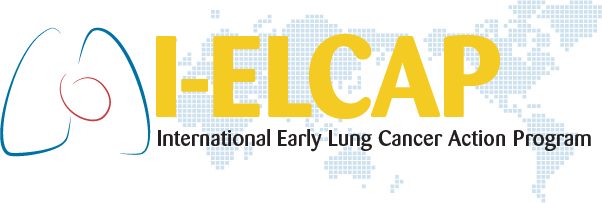Previous Meetings
The 15th International Conference on Screening for Lung Cancer
Friday, October 20, 2006 to Sunday, October 22, 2006
Weill Medical College of Cornell University
New York, NY
United States
Agenda: 15th Conference Agenda
Mission:
The broadest mission of these Conferences is the collective pursuit of understanding of the issues surrounding screening for lung cancer, the main subissues being early diagnosis and early intervention. Any given Conference focuses on issues that are particularly topical at the time, including updates of research on and development pertaining to screening for lung cancer and related topics.
Initially the focus was on diagnostic research, leading to updates of the regimen of screening and understanding of its performance characteristics. Recent prognostic research has focused on the effectiveness of lobectomy as the treatment of Stage I cases diagnosed as a result of CT screening as well as concerns about lung-sparing treatments. The ultimate goal of the I-ELCAP collaboration has been, and is, to develop the required individualized knowledge base for decision-making by persons considering the screening.
The focus of this Conference will be on the pursuit of consensus on the current state of knowledge about CT screening for lung cancer.
Consensus Statement:
This Conference focused on the long-term post-diagnostic follow-up results in the I-ELCAP collaboration. These results had been presented in the prior conferences, but as they would be appearing in the New England Journal of Medicine, they were presented for discussion by representatives from the public health, research, and patient advocacy communities as well as of the American Cancer Society, the National Cancer Institute, and the US Preventive Services Task Force. There was a diversity of responses ranging from calling for CT screening now to waiting until the results of the National Lung Screening Trial are available around 2010.
As usual, updates of developments in the I-ELCAP network were presented, including new grants and contracts, and changes in the ELCAP Management System and website. The possibility of cardiac research surrounding identification of coronary calcifications was addressed, and so also were the issues in moving from predominantly research settings to those of practice alone. The need for centers of excellence for quality assurance of widespread screening and early treatment was stressed. The value of computer aids in diagnosis was reviewed, in part in light of such diagnostics being used in screening for breast cancer. New considerations of pathology and staging of lung cancer were presented according to the 2004 World Health Organization report, including the need for updating of the staging criteria. The current status of surgical and chemotherapeutic intervention was presented. The importance of including smoking cessation programs with lung cancer screening was again stressed.
Four workshops were held. One of them addressed the concerns that critics might have about providing screening, even if on suitable indications for it, and what view to take of these reservations. Concern 1: Too many ‘false positives.’ It was noted that by suitable definition of who requires further work-up, only 15% of the people needed it in the baseline round of screening and a mere 6% in each repeat round. These rates are comparable with their counterparts in breast-cancer screening. Concern 2: Too many operations. The pathology review panel found all resected cases to be genuine cancers. In addition, growth was demonstrated prior to surgery. All stage I cases without treatment died of their lung cancer (within 5 years of diagnosis). Concern 3: Cost to society. It would not be higher than those of already accepted types of screening, in part because the treatment at Stage I is much lower than at later stages. Concern 4: Radiation dose. The estimated dose from a low-dose CT scan is less than the average annual background radiation dose for a typical person in the US. Concern 6: Quality assurance. A multidisciplinary team familiar with issues of the screening should be available. Concern 7: Not enough radiologists. There is indeed a shortage of radiologists trained in CT screening for lung cancer, but I-ELCAP could provide courses coinciding with its semiannual Conferences.
Of the other workshops, one made recommendations on how best to use mathematical models of lung cancer screening to guide public-health policy, and this will be addressed further in a workshop at the next Conference. Another one addressed the use of molecular markers for diagnosing, staging, and treatment of lung cancer, and the need for the development of standardized procedures of tissue specimen collection and banking, which also will also be pursued in subsequent Conferences. The remaining workshop started the training of study coordinators for the Legacy Screening and Smoking Cessation Trial to be started in 2007.
Scientific presentations and poster presentations remained a focal point of the Conference.
